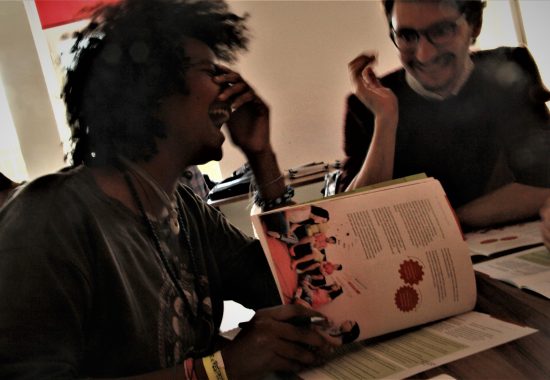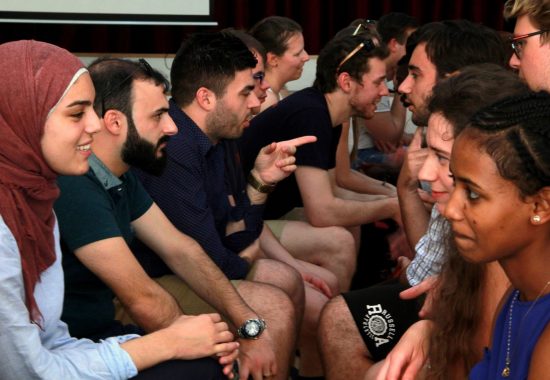From 1 January 2018 through to July 2020, aditus foundation and JRS Malta will be implementing a project geared to assist refugees as they attempt to integrate in Malta: Project Refugee Assistance Malta. The main aim of the project is to ensure that refugees and asylum-seekers are able to live a dignified life in Malta, where their immediate needs are promptly identified and met and where they enjoy access to their rights and opportunities.
Continue ReadingTag: integration
What the Council of Europe’s Human Rights Commissioner told Malta about migrants/refugees.
In a letter addressed to the Minister for Home Affairs and National Security of Malta, Mr. Michael Farrugia, the Council of Europe’s Commissioner for Human Rights, Mr. Nils Muižnieks, urged Malta to improve the protection and integration of migrants, while appreciating Malta’s policy changes to end the automatic detention of migrants, its participation in the EU refugee relocation programme and the recently-adopted migrant integration strategy.
The Commissioner highlighted the need to lift obstacles to migrant integration, such as lack of housing, the distinction between refugees and beneficiaries of other forms of international protection, migrants’ access to legal employment, access to family reunification, access of long-term residents to citizenship.
Furthermore, the Commissioner called for the introduction of judicial review of Refugee Appeals Board decisions.
In particular, the Commissioner expressed concerns that the decisions of the Refugee Appeals Board they suffer from shortcomings due to a lack of comprehensive reasoning.
Mr. Muižnieks welcomed the improvements in Ħal Far reception centre but emphasized that reception centres should only be transitional accommodation solutions, since migrants and beneficiaries of international protection ought to have access to adequate housing. The lack of adequate housing creates an obstacle to integration, and it may create tensions between migrants and the local population.
In order to overcome obstacles and guarantee adequate housing, Malta should give full effect to Article 31 of the European Social Charter (ESC) concerning right to housing, and Article 16 of the ESC concerning the right of the family to social, legal and economic protection. Besides giving full effect to these articles, Malta should accept Article 19 of the ESC concerning the right of migrant workers and their families to protection and assistance.
The Commissioner noted Malta’s distinctions between refugees and beneficiaries of other forms of the international protection in aspects of entitlement to social security benefits and family reunification. By giving full effect to Article 13(4) of the ESC, Malta would guarantee that all foreign nationals are entitled to emergency medical and social assistance.
As family reunification is one of the most crucial factors in integration, Malta should ensure quick and effective access to family reunification for all, also for beneficiaries of subsidiary protection, in conformity with the right to family life under Article 8 of the European Convention on Human Rights (ECHR).
Currently, beneficiaries of subsidiary protection are not entitled to family reunification under Maltese law, which creates an unfair distinction and disadvantages persons with subsidiary protection.
According to the Commissioner’s letter, other obstacles for migrant integration include difficulties accessing the legal employment market and access of long-term residents to citizenship. Bureaucratic obstacles to migrants’ access to the labour market should be removed in order ensure integration, which can also be seen as an opportunity for the national economy.
Furthermore, Malta should accede to the 1954 Convention relating to the Status of Stateless Persons and the 1961 Convention on the Reduction of Statelessness, as well as to ratify the 1997 European Convention on Nationality.
In his reply, the Minister for Home Affairs and National Security said that Malta is in the process of revising its migration and asylum systems. The Minister highlighted the improvements already made to reception centres, and the continuing work on them. The process of revising migration and asylum systems will include efforts to maintain family unity, and will look at ways of improving the current appeals system.
Since the Commissioner raised concerns regarding the lengthy and unfair family reunification process, the Minister noted that Malta’s current regime is compliant with the provisions of EU Directive 2003/86/EC, which provides for family reunification for refugees, and Directive 2011/95/EU (Qualification Directive) which provides for family unity, and that efforts are being made to maintain family unity in the contexts of resettlement and relocation programmes, as well as during Search and Rescue operations.
Furthermore, the Minister emphasized that the process of revising migrant and asylum systems will include improving the current appeals system so that Malta’s system would be in line with international standards. Moreover, in relation to the Commissioner’s concern regarding the lack of asylum-related training and capacity of the Refugee Appeals Board Members, the Minister referred to planned training with the European Asylum and Support Office (EASO).
We welcome Commissioner Muižnieks’ letter to the Maltese authorities, particulalry since it reflects concerns we have often expressed in relation to the situation of migrants and refugees in Malta.
We’re of course keen to follow the progress referred to by the Minister in his response, particularly the work aimed at improving the quality of Refugee Appeals Board procedures and decisions.
This article was prepared by Emma Pahkala, Office Intern.
Youth, Not Status II Training Weekend
On 11th-12th of November aditus held the second Training Course of Youth, Not Status, the Erasmus+ project that aims to bring together young Europeans and young refugee/migrants (range of age 18-30 years old), to provide them with human rights information and skills necessary to structure ideas and strategies for them to inform national policy-making on youth themes.
The training took place at Aġenzija Żgħażagħ Youth Village Complex in St. Joseph High Road, Santa Venera, and gathered together 20 young learners of all ages between 17 and 28 and from different backgrounds and helped them explore and change the discourse on migration and to understand the challenges and potentials of cultural diversity, inclusion, social integration.
The first session on Saturday 11th fostered social cohesion and promote intercultural dialogue. Dr. Anne Bathily and Dr. Virginie Gailing canvassed concepts and addressed subjects through interactive working group exercises to promote social inclusion and challenge racism and stereotypes.
They combined them with body-storming games as a powerful learning tool to improve critical thinking and education to achieve sustainable development, intercultural understanding and awareness campaigning.
It has been amazing watching the trainers with their interactive tools and proposals. The different protocols helped enormously in encouraging debate, to raise issues and work together to find solutions on daily based situations.
The Training gave us practice and examples of how to be aware and acknowledge that growing inequality has become a pressing issue.
The participants kept telling me, yesterday, that they felt very privileged to have participated in the workshop.
Antonella Sgobbo, aditus Programmes Officer and Youth, Not Status Project Coordinator.
During the last stage of the day, the identification of three project ideas took place in a very engaging working groups set up, three tables for three different projects:
- National Youth Council/equivalent of youth platform to be given a vote + consultation power in policy making process of Parliament
- Youth Media Platform
- Social integration campaigns
The workshop concluded with pitches of these proposals in front of a proper jury composed of a journalist, a video maker and a project manager who provided the participants with valuable advice on the potential impact of the projects.
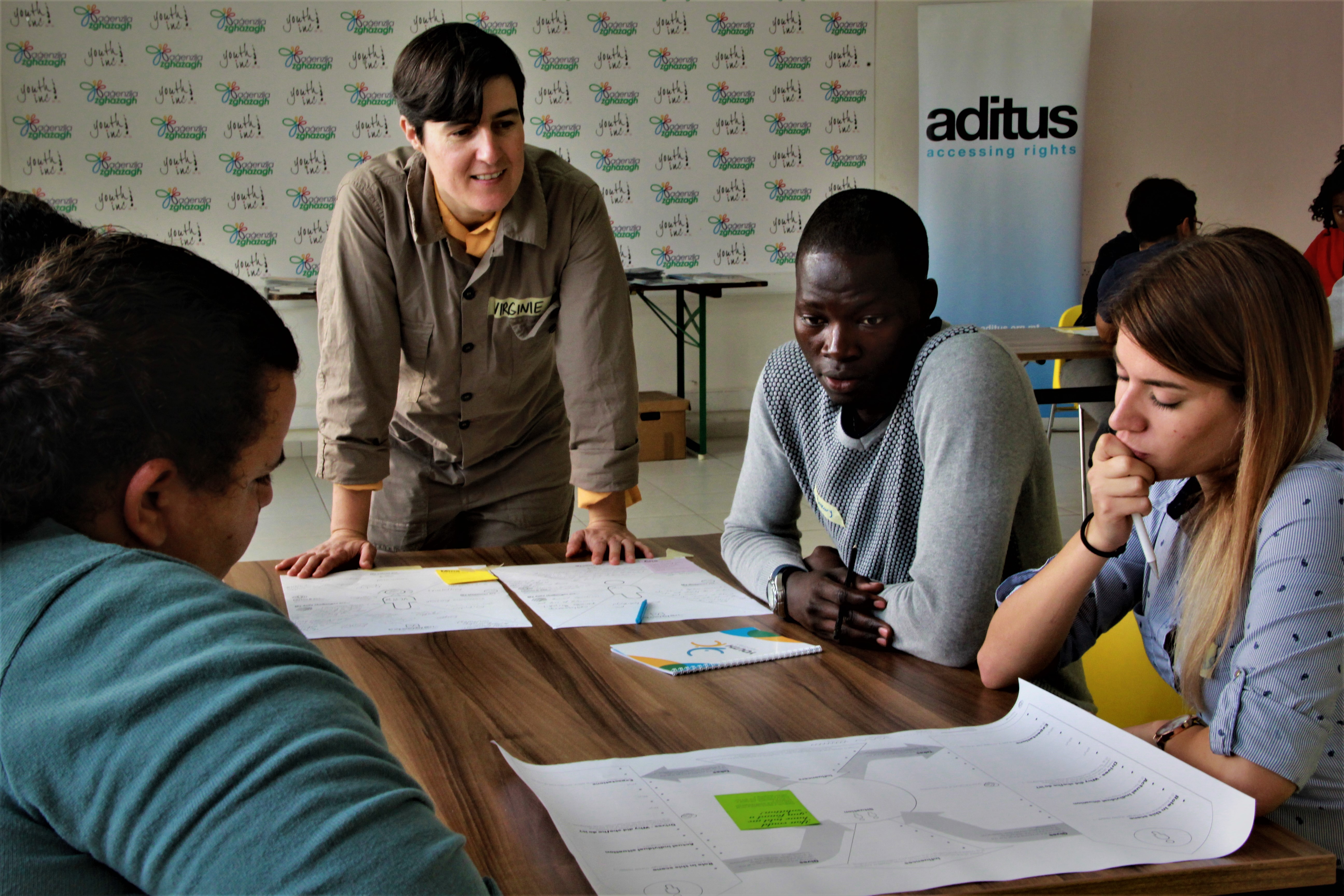
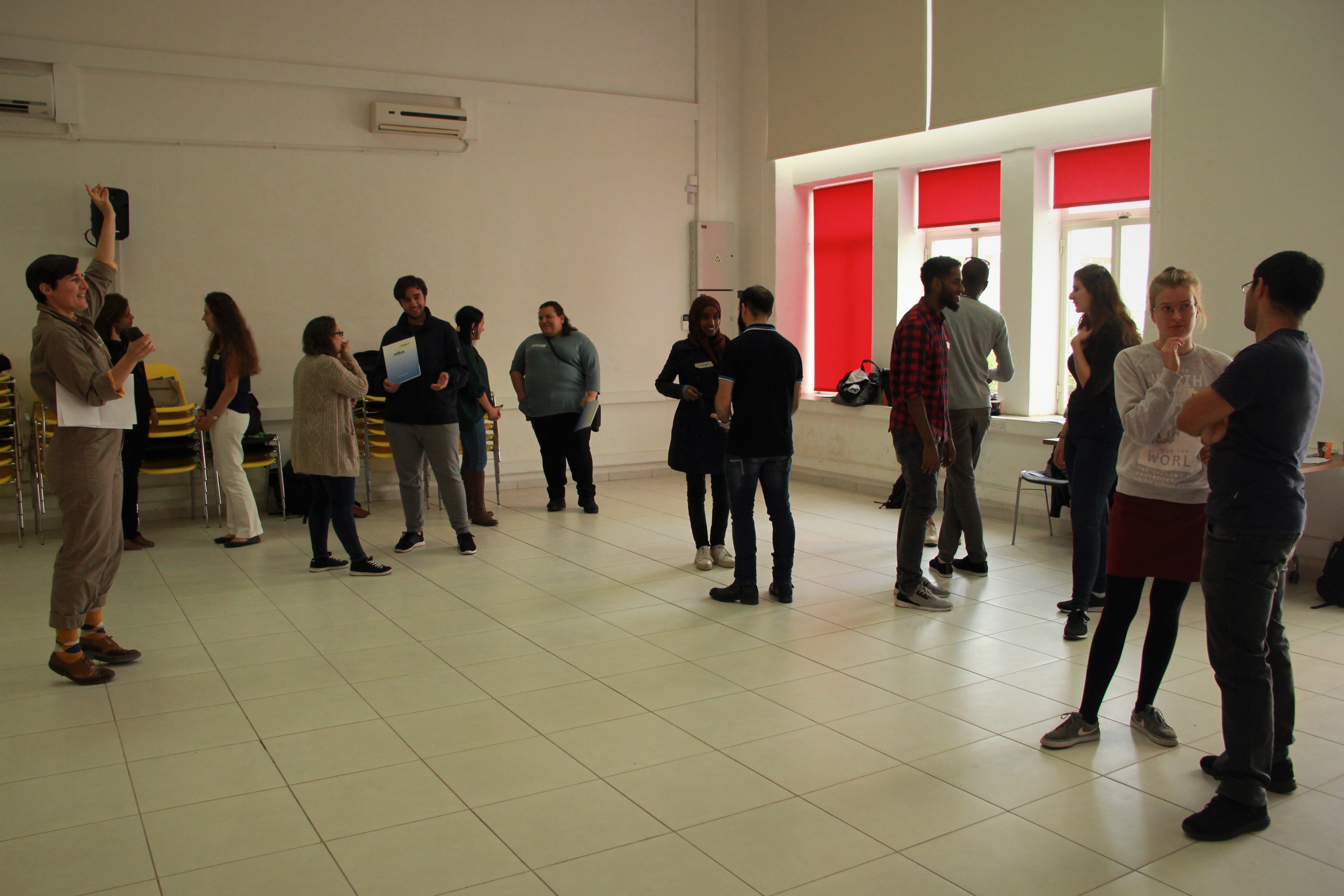

The next session on Sunday 12th sought to identify how young people can make use of the policy to advocate for their needs. Dr Gabi Calleja facilitated the session about “the National Youth Policy Towards 2020: A shared vision for the future of young people”, as part of the Government’s policy for greater participation, equitable economic and social progress for all and inclusive change.
The panel examined topics such as human rights and justice; political participation and decision-making; gender and health inequalities; and employment, education, and migration opportunities, in the context of youth development, empowerment, and equality within society.
The participants provided input on the strategies of the policy before its implementation and they advocated for increased inclusivity in the aims and the objectives of the policy.
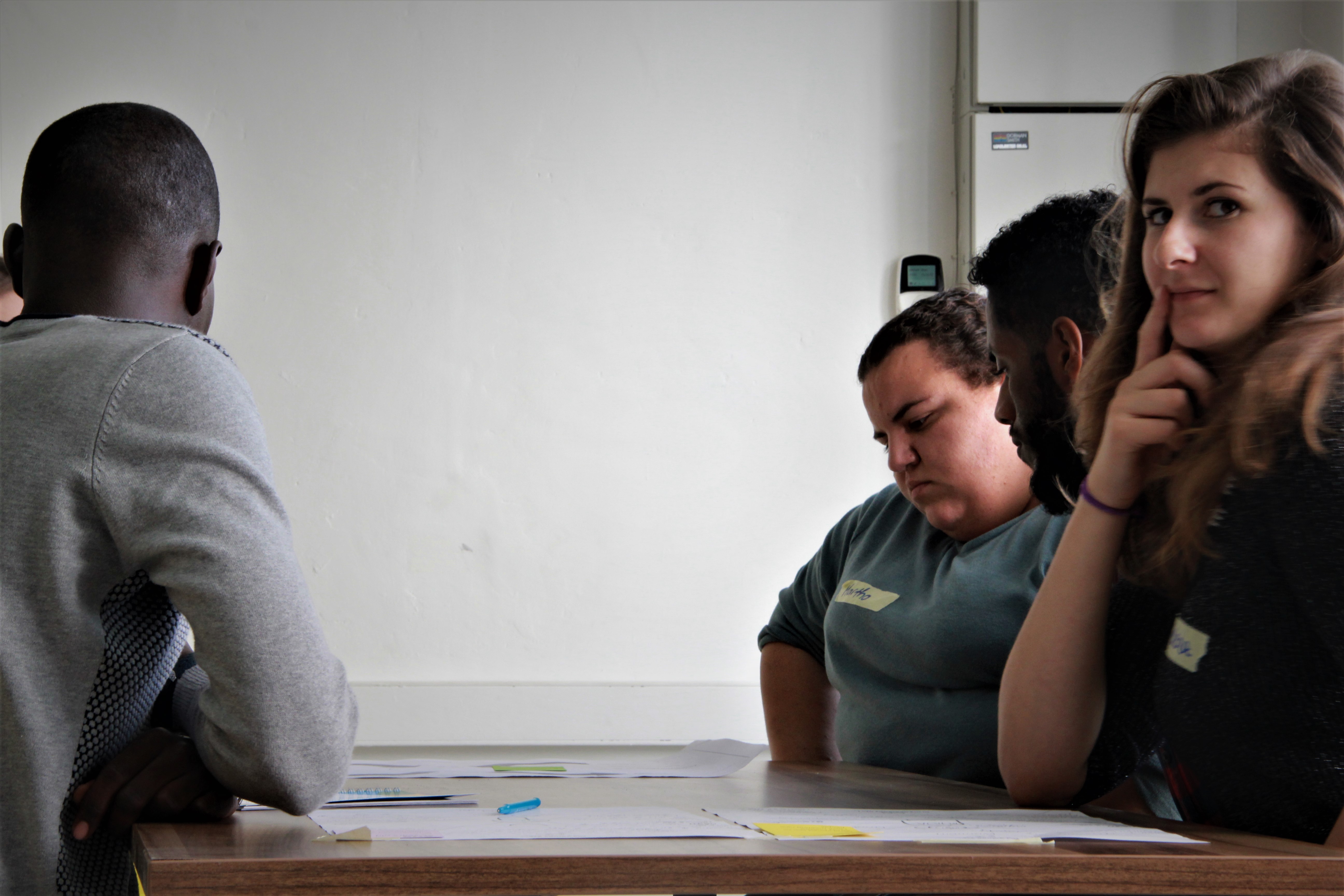
The workshop provided an invaluable platform for migrant and Maltese youths to interact and learn under the guidance of national and international coaches on integration, youth policy and journalism.
The interactive nature of the workshop made the weekend thoroughly enjoyable!
Helena A. Youth, Not Status participant.
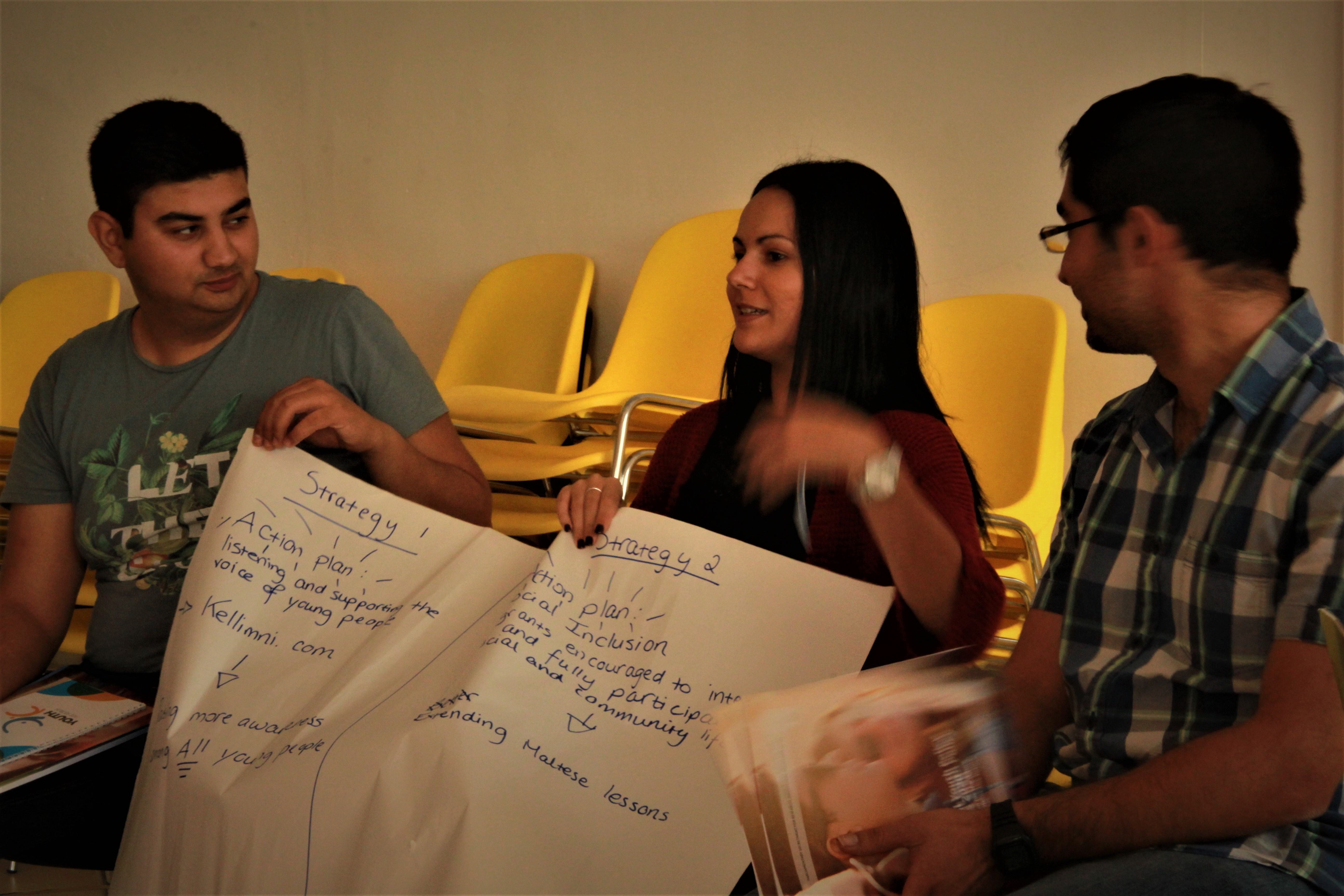
Jurgen Balzan led the last talk ‘Young people’s representation in media across the Mediterranean’. A vast majority of citizens in Europe and the southern Mediterranean now recognise youth-led initiatives and education reform as the best way to tackle discrimination and extremist narratives.
Jurgen gave an example of how social media played a significant role during the Arab Spring as it facilitated communication and interaction among participants of political protests, and he shared his experiences in reporting on cases involving migrants. The group of participants debated on how displaced and vulnerable people can be empowered through the use of social media and other platforms.
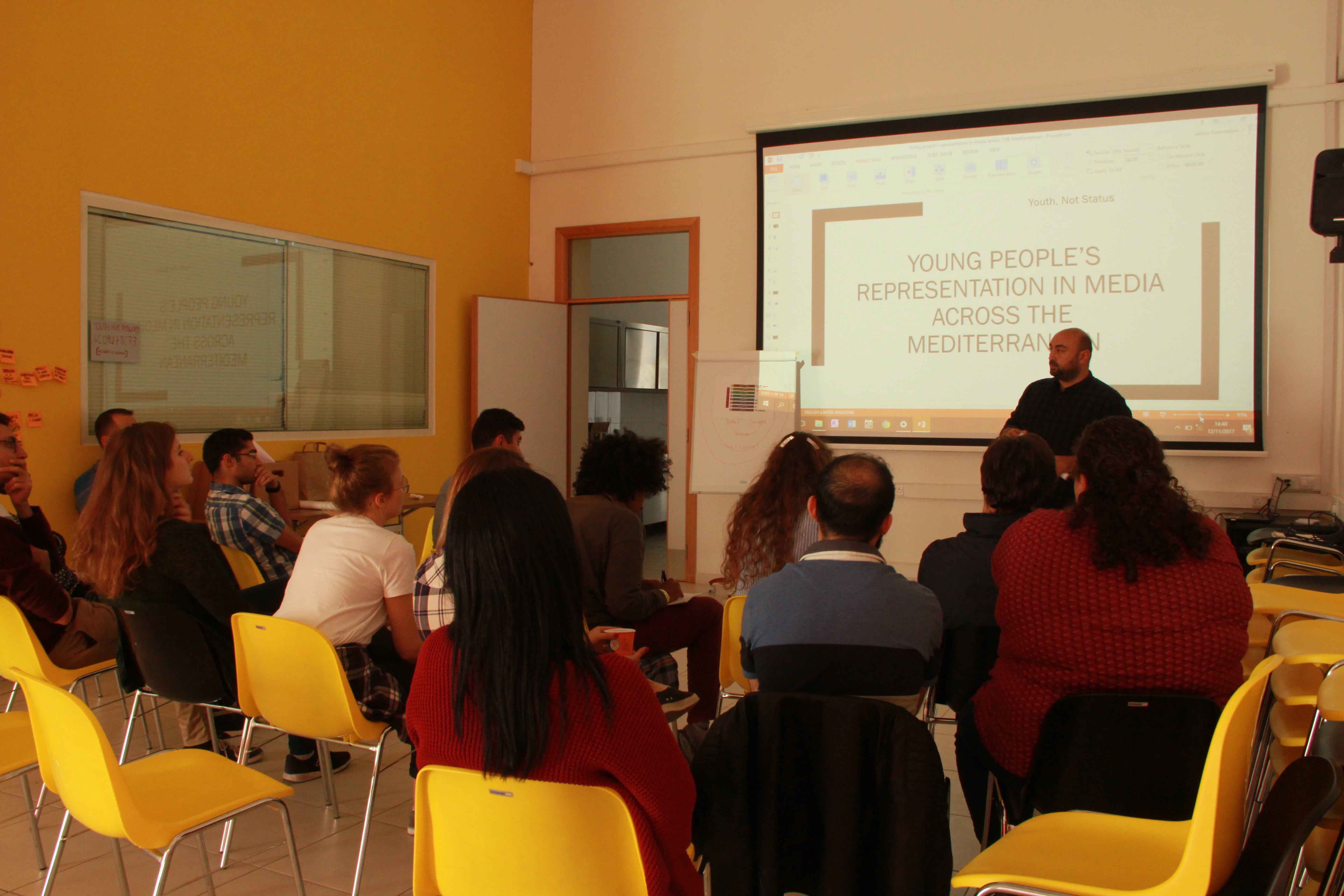
My participation in Youth, Not Status made me feel more comfortable and free to speak about migration. I met new people, we shared our experiences. Everything is more realistic now! Being judged as migrant, refugee in this Country needs to be refreshed up.
We shared our voices, we were very engaged, despite of the pressure and the animated debate.
Our voices can change the whole world.
It was a pleasure meeting also Jurgen Balzan, the journalist who spoke about the situation that happened in North Africa and in the Middle East. Thanks.
Omar, Youth, Not Status participant.
If you want to know more about Youth, Not Status project click here:
http://aditus.org.mt/our-work/projects/youth-not-status/
If you want be involved in the next activities of Youth, Not Status, get in touch with us:
antonellasgobbo@aditus.org.mt

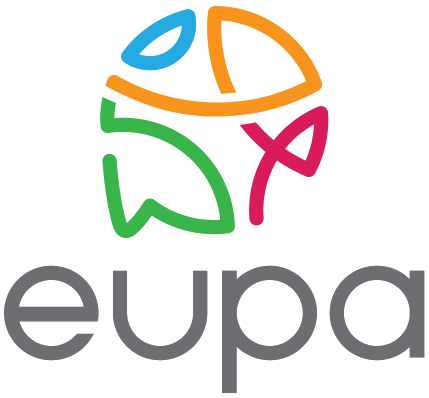
Photo credits: Antonella Sgobbo
Youth, Not Status gathered 30 youth for its I training course weekend
On Saturday 30 September and Sunday 1 October 2017, we held the first training course weekend of our project Youth, Not Status. 30 young people living in Malta, coming from different backgrounds and nationalities. Students, youth leaders, social workers and various trainers, gathered for 2 days at the Archbishop’s Seminary in Rabat.
The training course weekend was an opportunity for our participants to create a platform to exchange experiences, practices and methods for young people and youth organizations on how to address migration, integration and human rights issues at the grassroots. It also included discussions focusing on national youth actions and how to strengthen the awareness and mobilization of young people in relation to these issues.
The project, funded by Erasmus+, will bring together Maltese youth and young refugees and migrants in an open social dialogue with local authorities focused on key themes of migration and integration relevant to Malta, highlighting stories and experiences from a youth perspective.
The training is also an opportunity for brainstorming about ways in which young people can be mobilised into find solutions in common critical areas: such as political participation, prevention of violent extremism, cultural heritage, freedom of expression and media and information literacy.
The training course weekend was designed to encourage discussions between Maltese and migrant youth in order to increase knowledge and awareness on migration, to reflect about the effects of migration on the rights of young refugees, and to understand the challenges and potentials of cultural diversity, inclusion, social integration, youth work and youth political participation.
The 2 days of training were structured into 4 different sessions facilitated by our Assistant Director Carla Camilleri, Maria Pisani from Integra Foundation, Binda Consulting International and PRISMS Malta. The sessions focused on the following topics:
- Civil Society and Democracy;
- Youth Narratives and Youth experiences with Racism, Marginalisation, xenophobia.
- Youth as Political Citizens,
- Youth Sharing Experiences, Multiculturalism.
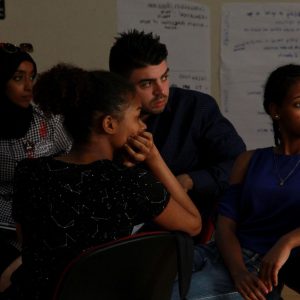
Due to the lack of information on the existing issues, preconceived ideas, the continuous criminalization of the irregular migrants and their presumed threat and youth civil society, Maltese and the refugee and migrant community are not empowered to act as a cohesive group.
The sessions held during the weekend aimed at strengthening the protection of the rights of migrants and to change the societal attitudes towards them by integrating human rights discourse and the dignity dimension into the public debate on migration.
The discussion among the participants concluded with two main objectives:
- to change the discourse on migration by mainstreaming the topics of human rights, dignity and protection into public discussions;
- to develop and implement advocacy goals aiming to ensure the implementation of opportunities for youth to engage in governance and participate in political and decision-making processes.
Youth, Not Status next training course will be held on the 11 and 12 November.
The topics will be:
- Cohabitation and co-work between young Nationals and young Refugees in Malta;
- Young people’s representation in media, dialogue and collaboration between youth and key media actors;
- National legislation on youth revision participation to advocate for the development of national youth strategies and policies and to lobby for the sound implementation of these.
REGISTRATION IS STILL OPEN!! Click here to apply:
http://aditus.org.mt/our-work/projects/youth-not-status/registration-form/
If you need more info, don’t hesitate to get in touch with us:


Awareness Campus – aditus at a training in Italy
From 3rd to 16th July 2017, Teatro Stabile di Torino and Banca San Paolo with the support of the Regione Piemonte organised the Training Awareness Campus in Moncalieri, Turin, Italy, addressed to actors, cultural mediators, animators, dancers, social workers, doctors, psychologists, physiotherapists, trainers, gymnasts, singers and students, aimed at the consolidation of a group for conducting theatrical practices for the care of the person and in particular for the migrants.
Being also a Drama Trainer and Artistic Project Manager of programmes exploring themes related to vulnerable, marginalised and displaced people, I flew to Italy, to Turin and was one of the 50 participants.
The training provided a safe space in which everyone, young people up to the age of 85 years old, could express themselves freely and explore their creativity. The applied learning method was based on the constant and rigorous exercise of awareness and attention through the practice of physical, vocal and narrative action and on the practice of articulated instruments for building a way of reflecting on space and relationships with the others. The training focused on acting, interactive theatre, devising to bear witness, raise awareness, and build alliances and a cultural resistance movement at the core of a free and critical society.
During the training, the practical work was supplemented by several public talks of pedagogy, philosophy, history, and literature held by professors and doctors coming from the University of Milan, Bologna and Turin. Also in the evening, the social life consisted of cultural events organised by local organisations of refugees, volunteering associations for people with disability and migrant women groups.
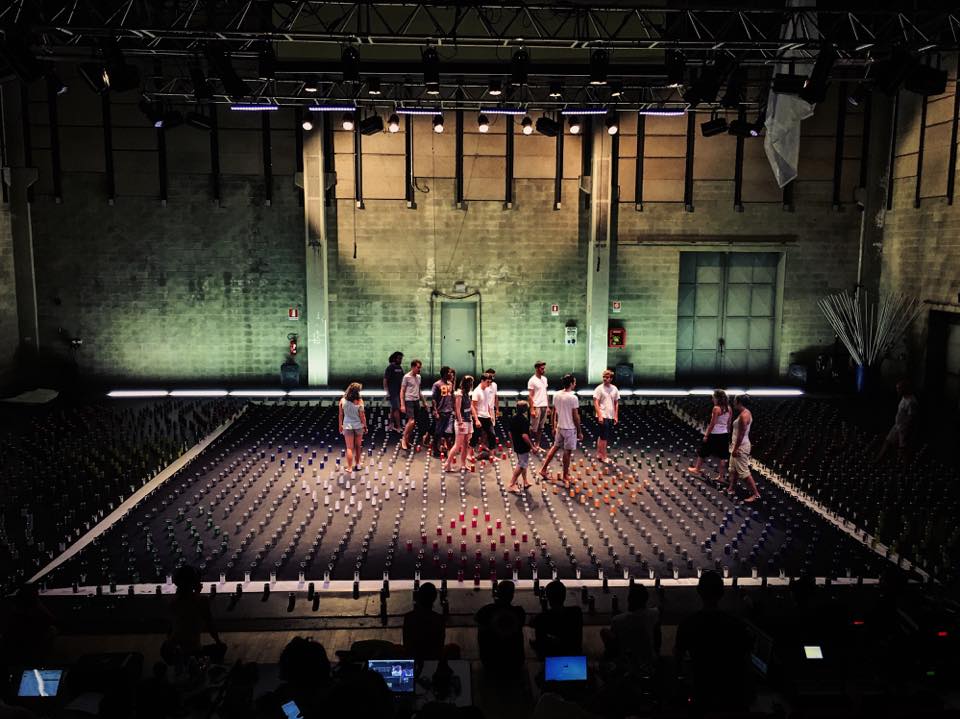
Fonderie Limone, Moncalieri, Turin, Italy. Ph credit: Giulietta Vacis
The training was very intense, from 9.00 in the morning till 8.00 in the evening. Living for 2 weeks with a very diverse group of people, sharing very personal emotions and stories helped us to develop an environment of inclusivity and integration in which every person is made to understand that she or he has a contribution to offer.
The trainers’ team worked hardly to facilitate and encourage our social interaction, collaboration, positive communication, mutual support and listening through very specific exercises and social games. I think that producing state of art and thought-provoking theatre and media products in order to strengthen collaboration, self-awareness, creativity and imagination is extremely important for working in our community and advocating good governance, accountability, equality, integrity and justice.
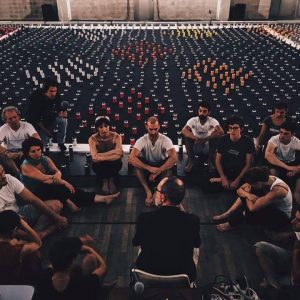
Fonderie Limone, Moncalieri, Turin, Italy. Ph credit: Giulietta Vacis
Artistic expression is a strategy to build a sense of community, of unity, of shared values, an alternative world view, and a commitment to making the struggle for social justice an integrated part of our lives.
The cultural resistance campus in Italy aimed to raise awareness and critical sense that is able to analysis of the reality around us and challenge all forms of oppression.

Fonderie Limone, Moncalieri, Turin, Italy. Ph credit: Giulietta Vacis
Antonella Sgobbo, Programmes Officer

